Search Results
Showing results 501 to 520 of 923
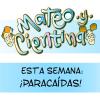
¡Paracaídas!
Source Institutions
En esta actividad, los participantes explorarán las fuerzas de gravedad y la resistencia al aire usando paracaídas.

Proprioception: Wiggle where you're at
Source Institutions
We're told from a young age that we have 5 senses, but we have many more. One of which is our awareness of our own body part's orientation and position.

Michelle O (formerly Vanna)
Source Institutions
We don't normally view people upside down and so our brains aren't accustomed to it.
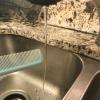
Static Water
Source Institutions
In this activity, learners will use static elecricity to bend a stream of water without touching it. Learners will explore physics and cause and effect through this activity.
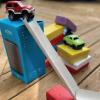
Ramp it Up
Source Institutions
In this activity, learners will build ramps and test how the laws of physics apply do different objects. Learners will explore physics and cause and effect through this activity.
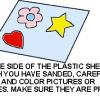
Shrinking Polymers
Source Institutions
In this activity, learners discover that some plastics will shrink when you get them hot. Learners bake polystyrene in a regular oven and discover what happens.
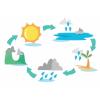
Water Cycle in a Bag
Source Institutions
In this activity, learners will explore the water cycle by creating a small atmosphere.
Glowing Tonic
Source Institutions
In this sunny day activity, learners compare how a cup of water and a cup of tonic water reflect or refract light in the sun.
Pour Some: Measure Serving Size
Source Institutions
Make snack time into measuring time and learn to read Nutrition Facts labels. Try this when you’re using “pourable” foods, such as cereal, yoghurt, or juice.

Circles or Ovals?
Source Institutions
This science activity demonstrates the dominant eye phenomena. What does your brain do when it sees two images that conflict?
Narrow It Down: Asking Yes-No Questions
Source Institutions
In this activity, the learner asks yes-no questions to identify a secret object (similar to Twenty Questions). This game is easy to adapt for different ages and different kinds of contexts.
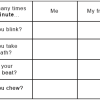
Blink
Source Institutions
In this self-measuring activity, learners observe and record how many times a minute they blink, take a breath, and chew, as well as how many times a minute their heart beats.
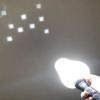
Constellation Viewer
Source Institutions
In this activity, learners will explore what a constellation is and make their own.
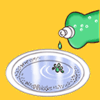
Pepper Scatter
Source Institutions
In this quick activity, learners break the tension that happens when water develops a "skin." Learners use water, pepper and some soap to discover the wonders of surface tension—the force that attract
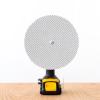
Squirming Palm
Source Institutions
Known as the waterfall effect, this activity demonstrates adaptation in our visual system.
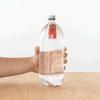
Condiment Diver
Source Institutions
In this hands-on activity, learners make the world's simplest Cartesian diver, using only a plastic bottle, some water, and a condiment packet.
Penny Jar: Estimating for Charity
Source Institutions
Learners will collect pennies to donate and will combine charitable giving with estimating and calculating with money. To start choose a charity or something to save up for together.
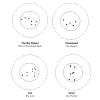
Constellation Scope
Source Institutions
In this activity, young learners explore the basic shapes of constellations by making their own scope out of a cardboard tube and paper with pinpricks.

Sound Representation: Modems Unplugged
Source Institutions
In this activity, learners listen to songs and decode hidden messages based on the same principle as a modem. As a final challenge, learners decode the binary messages in a music video.
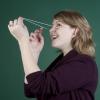
Head Harp
Source Institutions
Put a string around your head, and play it! Learn about vibration, sounds, and pitch.
